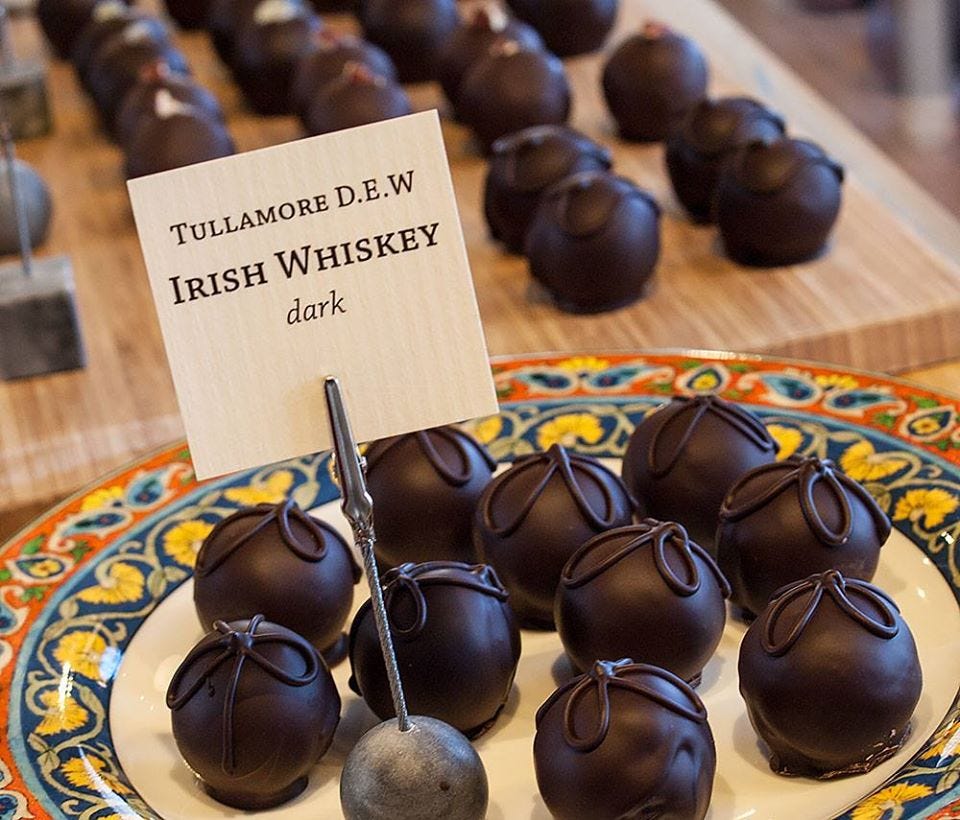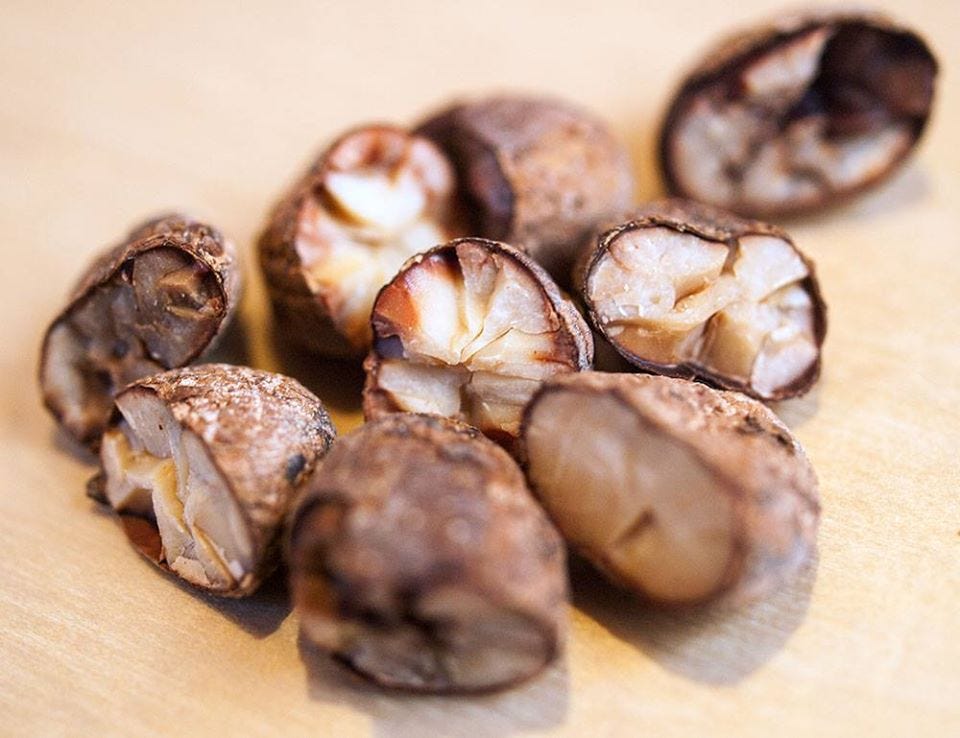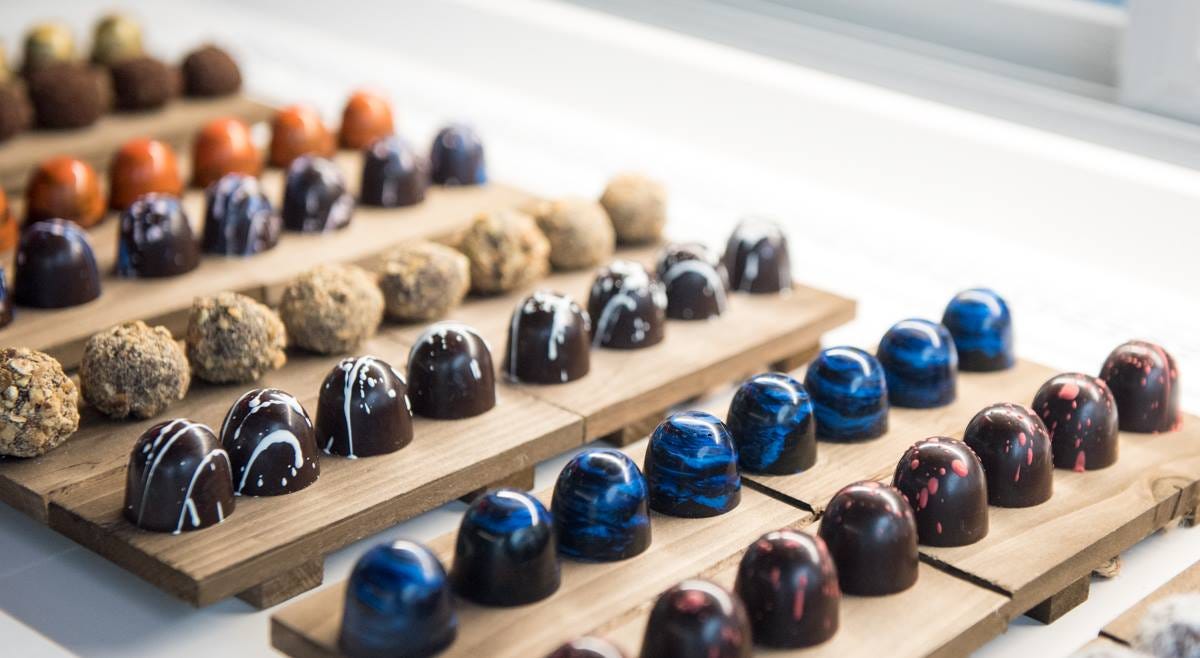Are we connected elsewhere? Say hi on: Instagram | Twitter | Facebook
I’ve never been a chocoholic, but I’ve been fascinated by the chocolate business ever since I read this feature in the Washington Post. Turns out it’s horrible, with almost-unpaid child labor creating the backbone of the whole industry. Since finding out about this I’ve really scaled back on chocolate purchases and have been looking for ethical companies to buy from. I won’t lie, it’s a slog avoiding conventional chocolate. For instance, I haven’t found an ice cream company that works with a chocolate supplier I trust, which means I’ve purchased ice cream maybe once in the past eight months. (And I could eat a pint every night, no problem. So this is a big lifestyle change.)
Luckily there are some small chocolate producers paying attention to their sourcing. We pay more for these products, but that’s appropriate, given the work that goes into them, especially on the farms. Some of them are featured below. And if you want to know more about chocolate’s history and present, you can check out the recent Smart Mouth episode on the topic. - Katherine Spiers
[Is there a chocolate brand you particularly enjoy? Let’s talk about them here.]

Photo: Nuance Chocolate
A Single-Origin Chocolate Maker Hidden in the Rockies
By Amber Gibson
Husband-and-wife team Toby and Alix Gadd are making what they say is the largest collection of single-origin (made with cacao from a specific region) chocolate bars of anyone in the world today, and in a pretty obscure location: Fort Collins, Colorado. In a college town best known for its craft beer scene, Nuance Chocolate offers around 23 different single-origin bars and 52 total different bars, some with inclusions like coffee and sea salt, on any given day day. In addition to the textbook chocolate bars, it also makes superb drinking chocolate and a wide variety of hand-rolled chocolate truffles with ganache fillings infused with local ingredients like honey and lavender or absinthe from Denver’s Leopold Bros.
The Gadds founded Nuance in 2014 after traveling to Costa Rica, where they visited a roadside chocolate museum, saw their first cacao trees, and took a chocolate-making class, learning to roast, crack and winnow beans, then grind the nibs in sweet condensed milk for a rustic chocolate treat. “We thought that we knew a lot about chocolate,” says Toby. “We had done many tastings ourselves, taking notes, but this started our true chocolate obsession.”

Photo: Nuance Chocolate
The Costa Rica trip would be their first and only cacao farm visit, but the Gadds say they are dedicated to using ethically and sustainably sourced cacao. To this end, they turn to John Nanci, known as the godfather of the bean-to-bar movement. “He’s one of the most thoughtful, ethical and hard-working people that I’ve ever worked with,” Gadd says. “He’s one of the rare people who has been endowed with equal parts scientist and heart. He has done extensive research on cacao sourcing, and I deeply trust and respect his process.” Nanci visits cacao farmers, and relies on third-party certifying agencies to verify that everything is ethical. “We strongly believe that nobody should be eating chocolate harvested with unethical labor, and we’re more than happy to pay what it takes to guarantee that,” says Toby.
Nuance doesn’t do any wholesale, and only last year launched an online store, which ships a limited selection of their bars nationally. The Gadds have never entered their chocolate in the International Chocolate Awards or Good Food Awards; they've never even visited another chocolate factory. They developed their processes through experimentation, almost entirely in industry isolation.
Toby attributes “FoCo”'s booming brewing scene to Nuance’s success. The majority of customers walking in the door have never tried single-origin chocolate before, so he does a lot of education, but visitors are usually familiar with beer flights. In between bites of chocolate from Madagascar, Ecuador and Bolivia, he'll encourage guests to cleanse their palate with a swish of whole milk or a bland water cracker.
“The best way to judge a single-origin bar is to nibble it throughout the day,” Toby says. “Right when you get up, after breakfast, before lunch, after lunch, after a bike ride, after dinner, with a whiskey, etc. It’ll taste shockingly different each time, frequently to the point of being completely unrecognizable as the same bar. To the skeptics out there, I’m always ready to sit down with some chocolate and prove it.” 🍫

Photo: Exquisito Chocolates
More Chocolate Makers to Try
Hilo Sharks is a farm in Hawaii growing coffee, vanilla and cacao. Tours are offered, but everyone not in Hawaii can order dark chocolate (with and without a coffee infusion) from the site. (Thanks to Rebecca Schmitz for the tip.)
Grocer’s Daughter in Michigan sources almost all of its cacao from Ecuador, and employees visit the farms its sources from every year. The bars studded with nuts, fruit, seeds, etc. are particularly popular.
Tony’s Chocolonely is an enterprise from the Netherlands dedicated to fixing the Europe-Africa cacao trade. It’s a very admirable company, and the product tastes great, too. Some of the varieties can be found in stores, but the website has a much larger selection.
Aloha Feels, another Hawaiian company, sells only one variety. Many small chocolate companies are “bean to bar,” but this one can (and does) say that it is “tree to bar.”
Exquisito Chocolates, a factory in Miami, is run by Carolina Quijano, who goes a step further than fair trade and espouses what she calls “direct trade,” which means paying the cacao producers themselves. Here’s a great, craving-inducing video about her from Eater. (Thanks to Jonathan Tanzer for the tip.) -Katherine Spiers
This newsletter is edited by Katherine Spiers, host of the podcast Smart Mouth.
Please forward to a food-loving friend!
A TableCakes Production.




Nuance is my favorite!
Great story of a great couple's success with chocolate! I'm so glad they are my neighbors!!! <3